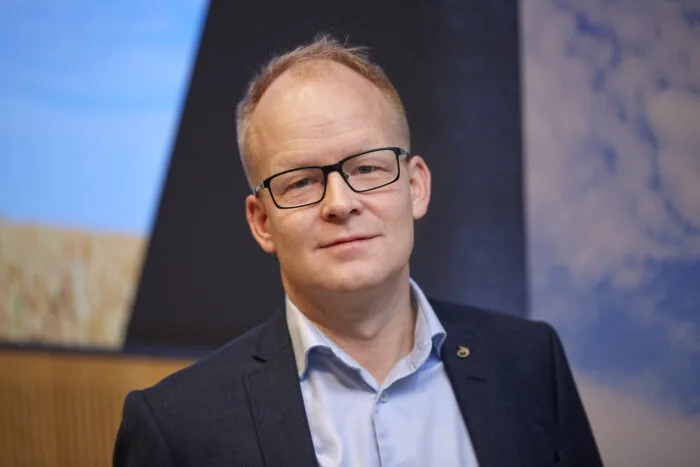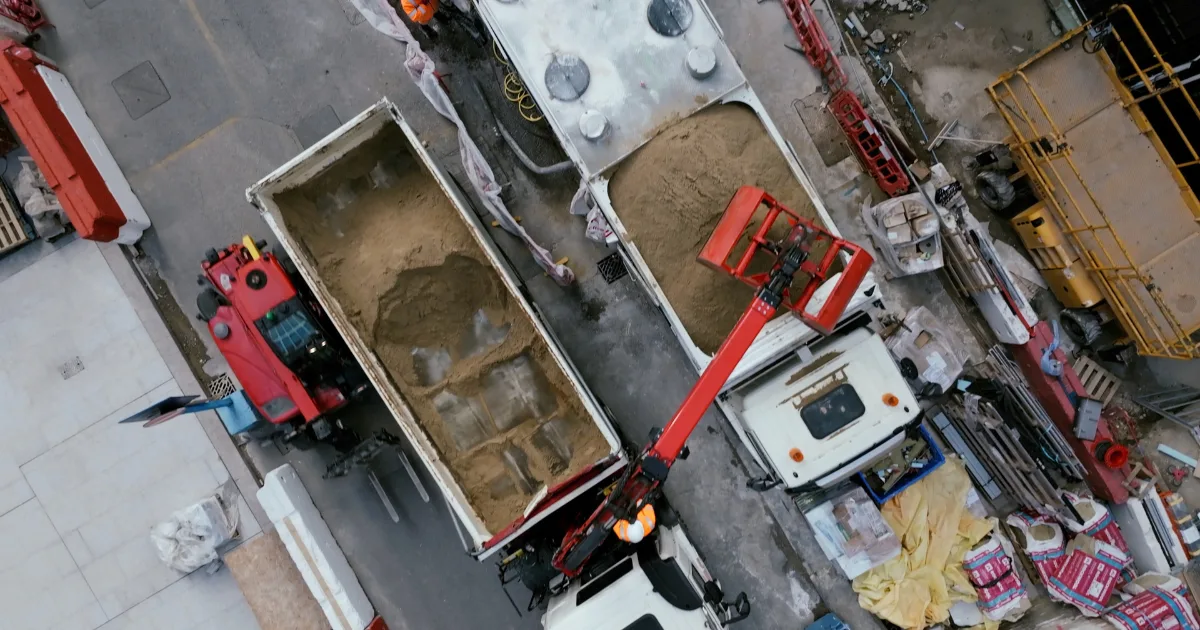Fossil-free mineral fertilizer vital for agriculture
Lantmännen is an agricultural cooperative, owned by 20,000 farmers, and Northern Europe’s leader in agriculture, machinery, bioenergy and food products.
Claes is leading Lantmännen’s work towards what the cooperative calls “Farming for the Future – the road to climate-neutral farming 2050”. He explains that they are following LKAB’s ReeMAP project with great interest. One of the aims of ReeMAP is to produce fossil-free mineral fertilizer. Access to, and use of, mineral fertilizer that is fossil-free, cadmium-free and circular and produced in Sweden or Europe, can support the transition towards greater sustainability in agricultural production.

Phosphorus essential for good harvests
Without the input of phosphorus-based mineral fertilizers as plant nutrients, crop yields would be halved. Within the EU there is only a single source of phosphate rock reserves. We are therefore import-dependent by as much as 90 per cent. At the same time, phosphorus is very important for our economy. Hence, why it has been included on the EU’s list of critical raw materials.
“Eliminating vulnerability to supply disruptions and achieving greater preparedness has recently been high on the agenda. Where agriculture is concerned, we have good prerequisites with respect to croplands and food production in Sweden. However, without input materials, we cannot produce. Securing access to mineral fertilizers and fuel in Sweden is therefore also vitally important for a robust food-supply chain,” explains Claes.
LKAB has capacity to manufacture mineral fertilizer in the form of monoammonium phosphate (MAP) that could meet Sweden’s annual demand five times over and cover much of the demand in the rest of Europe.
Consumers want products that are environmentally friendly
Conventionally manufactured mineral fertilizer has a high carbon-dioxide impact, owing to the use of ammonia. In the ReeMAP project, ammonia will be produced with fossil-free energy and hydrogen, making it carbon-dioxide-free. But mineral fertilizer isn’t what interests consumers most, according to Lantmännen’s head of sustainable development, Claes Johansson, since it is so far back in the value chain. Claes explains that consumers are more interested in the result; i.e., a fossil-free end-product for which the manufacturers can provide a clear overview of the environmental and climate impact.
“Those of us who are working to plan a new direction for farming and the issue of fossil-fuel freedom for Swedish agriculture have to remain cool. We also need to believe that emissions from fossil-fuel will become more expensive, and that sustainable alternatives, therefore, make better business sense. The fossil-free transition must take place with retained or strengthened competitiveness throughout the entire chain; otherwise, the emissions will just be moved somewhere else,” says Claes.
Cadmium-free important for Lantmännen
In addition to fossil-fuel freedom and circular solutions, Lantmännen has been working for some time to address concerns about the cadmium contained in some of the phosphates imported to Europe. The cadmium in mineral fertilizer eventually ends up in the food on our table. Unfortunately, this can cause osteoporosis and, thereby, result in greater costs for society.
“To create demand for low-cadmium phosphate, which Lantmännen is also promoting, what is needed are efforts both on the part of the industry, as well as legislation and regulatory frameworks at an international level. Even here, competitiveness comes into play. It isn’t so easy to create demand on the consumer market; the demand has to come from consumers,” says Claes.
Claes concludes with a reflection on the future of farming and sustainable concepts.
“For many consumers, ecologically sound products have long been synonymous with a good environmental choice. But now, in 2020, we face more and diverse challenges that are not really addressed by these frameworks as they are formulated today. Who can say that fossil-free mineral fertilizers cannot also be a part of the ecological concept in the future when manure won’t fully cover the need for plant nutrients? The food of the future will require future agricultural practices, which is why we must be prepared to think along new lines.”
Lantmännen’s report ’Farming of the Future’ shows how we can increase harvests by 50 per cent by 2050, while at the same time reducing the climate impact of cultivation, in line with the Paris Agreement.




